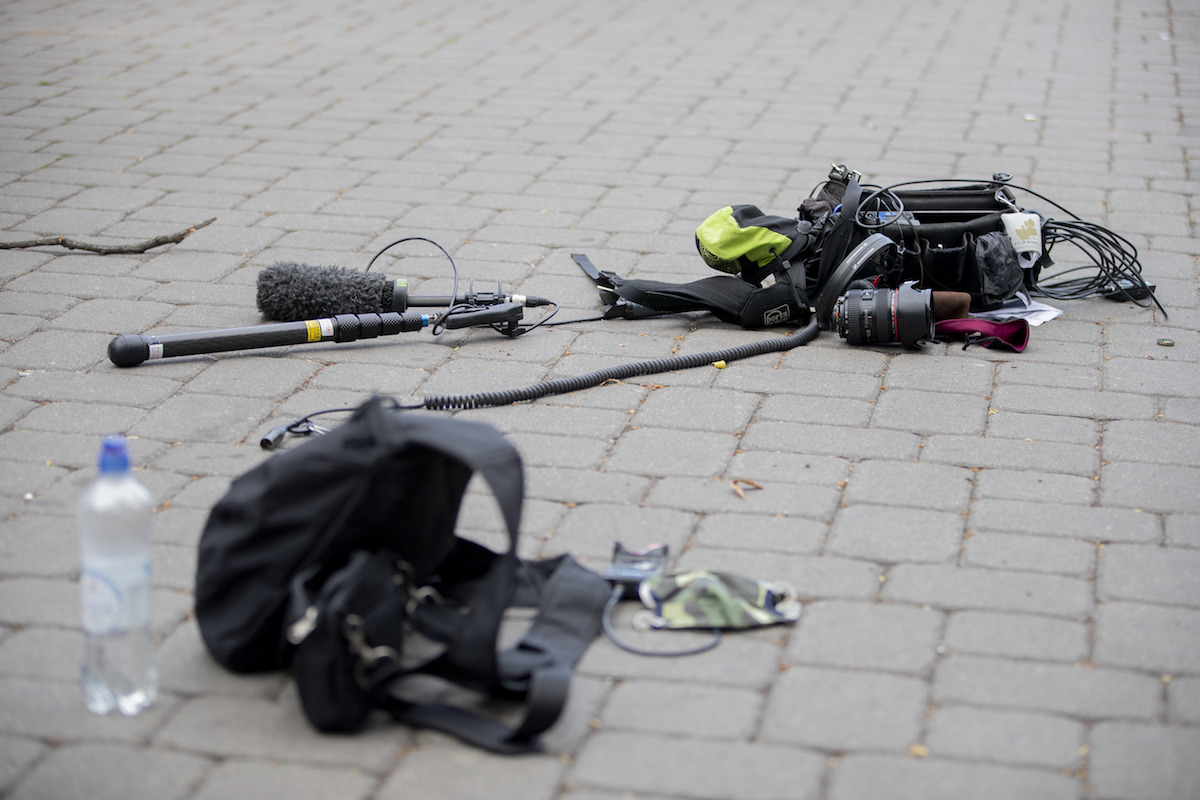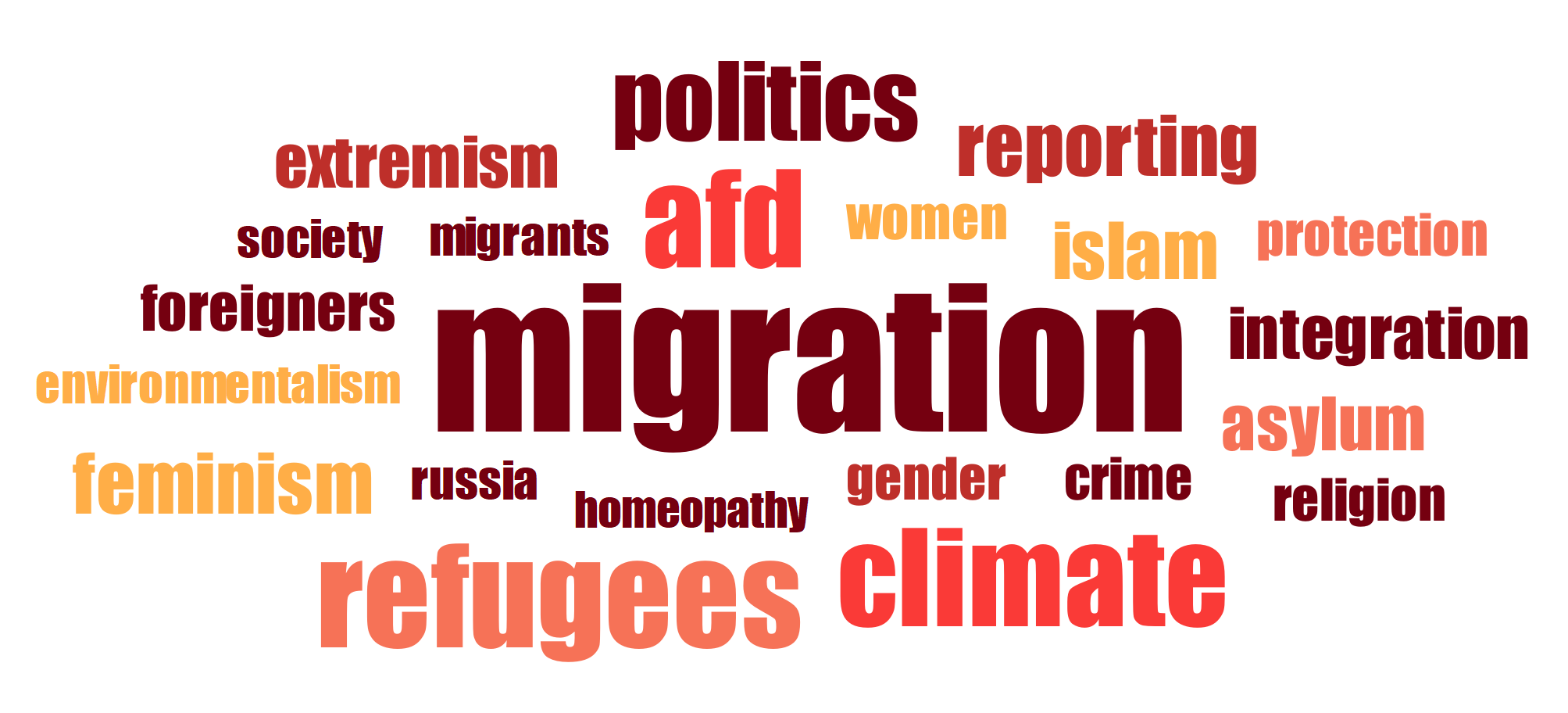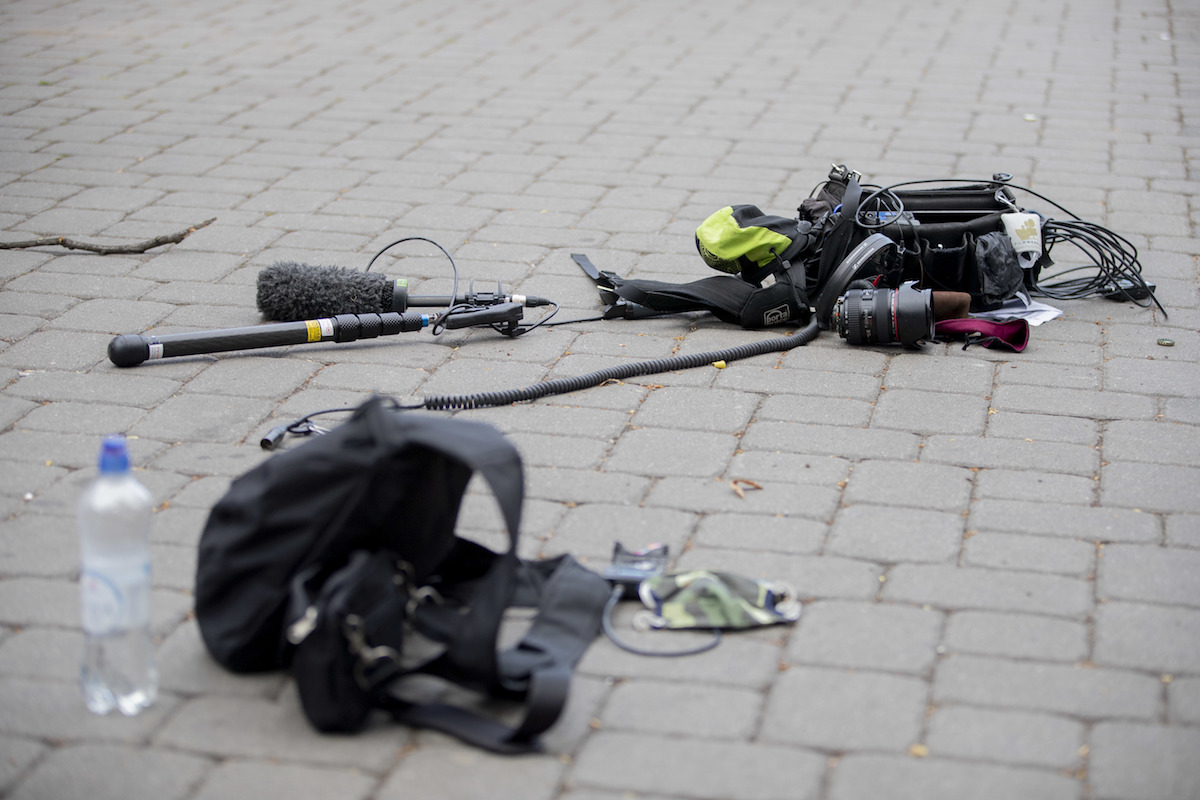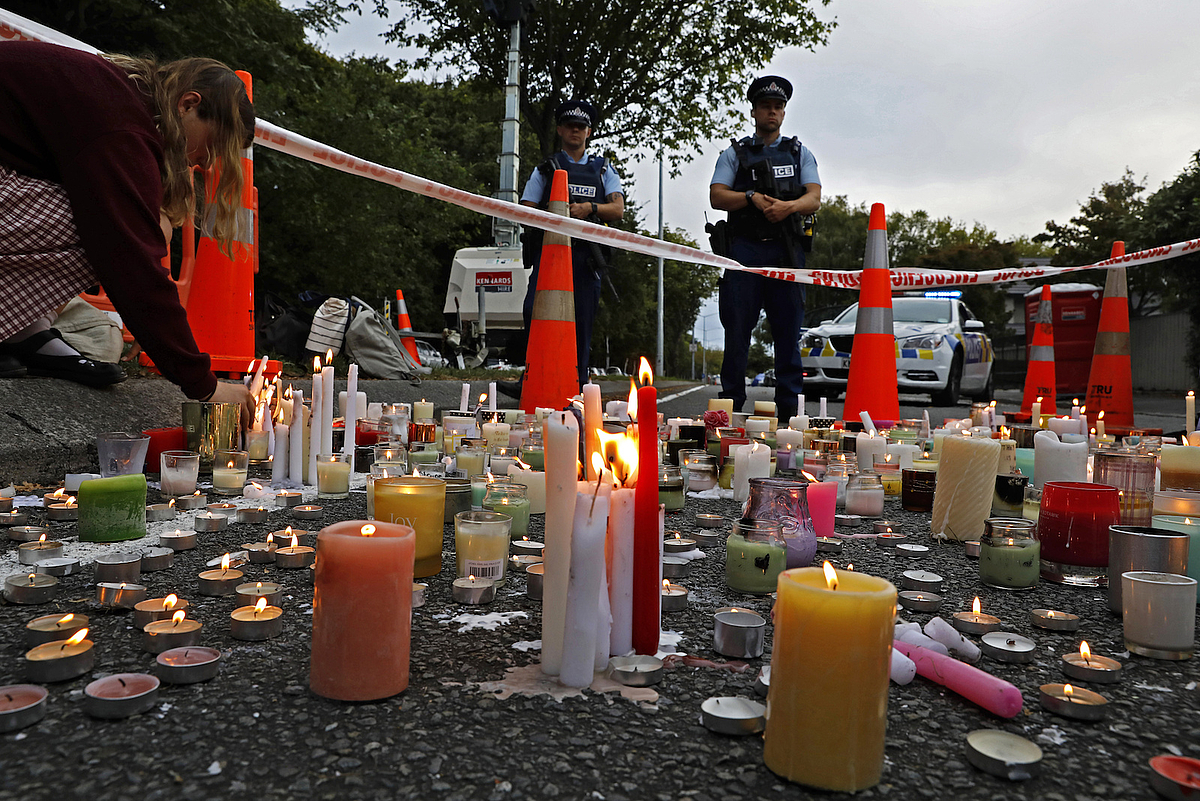How much are journalists in Germany affected by hatred and hostility? For the second time, the Bielefeld "Institute for Interdisciplinary Research on Conflict and Violence" (IKG) in cooperation with Mediendienst Integration surveyed media professionals throughout the country. The result: Around 60% of the journalists interviewed were attacked at least once last year. In 2017, the figure was around 42%.
41.3% of the journalists reported several or regular attacks. 16.2% report having been physically attacked at some point in their careers and 15.8% have received a death threat.
Download the full study in German here.
Over two-thirds (68.6%) believe that attacks on journalists and their work have increased in the last year. Many are concerned about more attacks in the future and about half (52.3%) express understanding when colleagues make the decision not to report on certain topics out of concern about attacks. Almost two thirds of all respondents (62.0%) also believe that press freedom in Germany is under threat.
"My camera team was pushed or shoved several times during PEGIDA* movement demonstrations. During riots in front of a refugee shelter in Heidenau, Saxony, stones were thrown at my team. During the riots in Chemnitz in September 2018, my team was attacked and I was pushed down a staircase.”
*Patriotic Europeans Against the Islamisation of the Occident is a far-right political movement in Germany
The most commonly cited topics susceptible to attacks by the public were "migration", "refugees", and Germany’s far-right "Alternative for Germany" (AfD). The vast majority of affected respondents (82.4%) believe hostility comes from those on the right-wing of the political spectrum. Almost two-thirds of all respondents (63.9%) believe that there has been an overall increase of attacks by political actors in Germany, with the AfD explicitly named as an aggressor against media professionals.
What effects do the attacks have?
The consequences of hatred and attacks on media professionals are particularly evident on the personal level: almost two thirds of those affected (63.3%) report psychological stress, such as "fears, stress and insecurity" (40.6%) and "effects on work quality and processes" (23.9%).
"In addition to the explicit aggression of hate-speech, there is also a more underlying aggression: a lack of societal appreciation for one’s work, which is psychologically stressful.”
In response to attacks, some participating journalists indicated that they find themselves self-censoring to avoid negative reactions from the public.
"You think about the possible reactions in advance of a publication. I then go through all the possibilities in my mind, not only for myself, but also for the people I write about."
What support is available?
Support for journalists has increased since 2016 and offers from editorial offices such as legal assistance and training are perceived as helpful. Only about one in five reported a lack of editorial support (18%). In order to deal with the attacks, many journalists also seek exchange with colleagues or in their private spheres.
"I personally found it helpful to consider how to position myself together with the editorial office. Rather than being left alone as the author, everyone stays calm together and doesn't let themselves be influenced by it."
The situation for freelance media professionals is different in that they are not as supported by editorial offices. A more consistent approach to hate-speech from the police and criminal prosecution is needed, stated the majority of respondents. The journalists in the study also advocate for more public solidarity and support from politicians so that German press freedom and independence can be preserved.
More information about the study
The present study is a new edition of the March 2017 study, "Hatred in the everyday working life of media workers - publishing becomes a test of courage". Both were funded by the Freudenberg Foundation. The 322 interviewees were recruited through national and local journalistic associations and participated through an anonymous online survey tool.
"Hate speech and attacks" were defined in the study as all kinds of hateful reactions that media professionals experience in their daily work – from verbal insults and hostility to calls for violence and/or criminal acts. Physical violence and death threats were also recorded, but treated separately.
The original study was conducted in German. Quotes from respondents have been translated into English by the article's author.
By Sophia Burton
Sie sind Journalist*in und haben weitere Fragen oder suchen Fachleute zum Thema? Dann können Sie uns gern kontaktieren. Wir helfen schnell und unkompliziert. Unsere Texte und Grafiken können kostenfrei unter den Regeln der Creative Commons und unserer Namensnennung verwendet werden. Dies gilt nicht für Bilder und Fotos, die wir von Dritten erworben haben.



